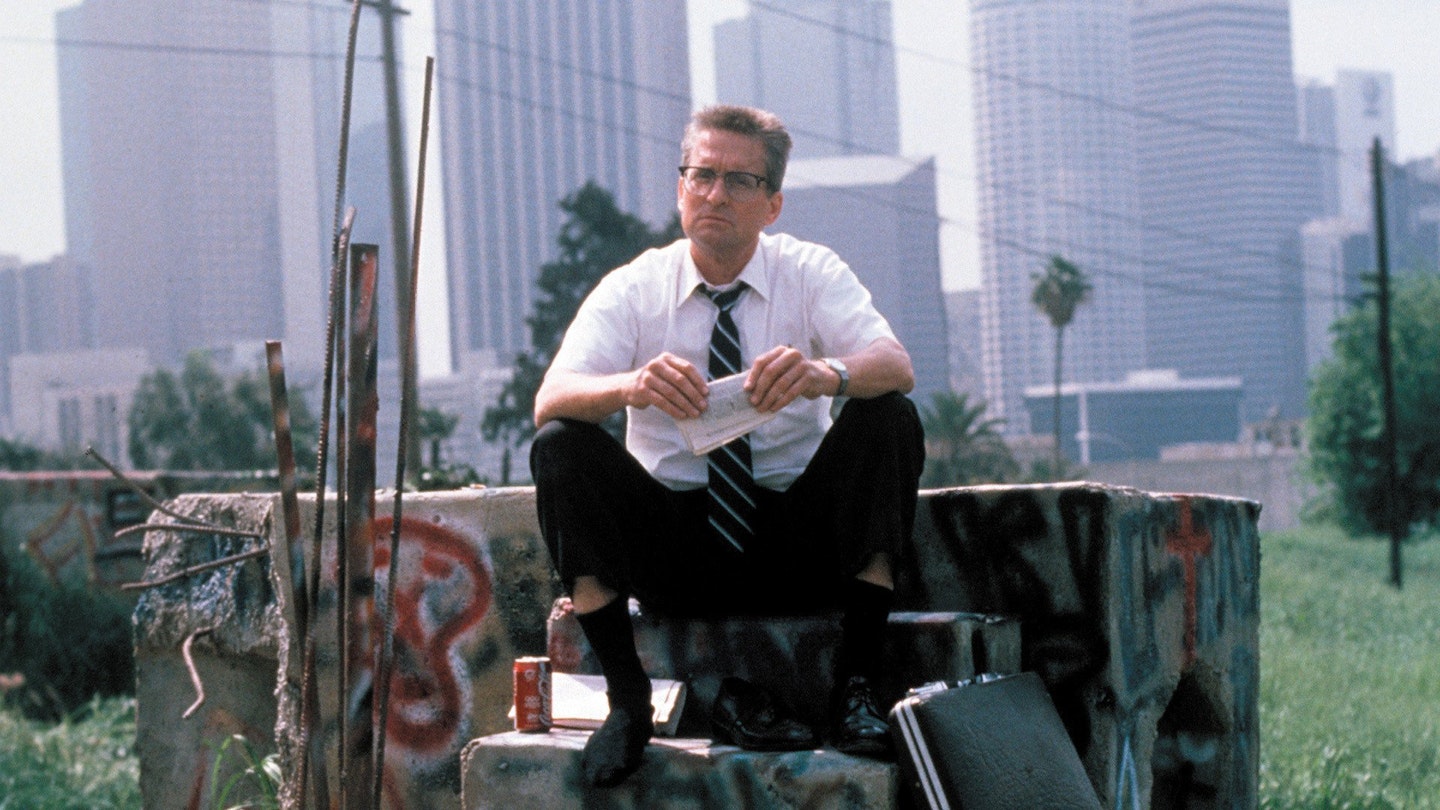"I'm going home," states William (a.k.a. D-Fens, a.k.a. Michael Douglas) at the beginning of Falling Down, finally abandoning his car when the heat, frustration and sheer crapness of being stuck in an L.A. freeway gridlock overwhelms him.
The big problem for D-Fens (so called because he works in the defence industry: "making America safe") is that, if truth be told, traffic jams are the least of it. Modern urban living adds up to a nightmare combination of gang warfare, immigrants who can't speak your language, burger joints from hell, rich bastards hoarding the best bits for themselves, unbridled selfishness and dark, depressing squalor.
And today, on his walk back home to Venice Beach from the freeway, he is not going to take it any more. Running like a California Tourist Officer's nightmare (the best credit? "Annoying Man At Phone Booth" or possibly "Kid With Missile Launcher"), this then proceeds like a cross between Death Wish and a Sergio Leone movie, with D-Fens encountering each urban irritation with a combination of long-suffering wit and machine-gun fire. A Korean shopkeeper, refusing to change a dollar for the phone, gets his shop smashed to pieces; a gang of Hispanic youths receive a taste of their own Uzi-power; and a startled burger vendor (played by Michelle Pfeiffer's sister, fact fans) is offered the option between serving breakfast and death.
Meanwhile, at the local precinct, Robert Duvall is on his very last day as a cop, deciding that the successful nailing of this fanatic would finish his career on a suitably upbeat note. Director Schumacher and screenwriter Ebbe Roe Smith are on frighteningly thin ideological ice here, of course, and their response is disappointingly cack-handed. Is the guy a fascist? Can't be: the only person he deliberately kills is a caricature of a sadistic Nazi. Is he a vigilante? Can't be: he actually says, "I am not a vigilante." Is he a racist? Can't be: he gives rich, white scum just as much grief as he does poor, black scum.
Schumacher, of course, is not renowned for his lightness of touch, but the obvious terror he feels at being labelled ideologically unsound does begin to grate after a time - a terror strangely not tempering the mildly misogynistic glee with which hen-pecked husband Duvall finally gives his wife an earful of abuse. Despite these reservations, this is a remarkably tense thriller and a thumping good story - like The Swimmer, which it often resembles, it manages to avoid the "and then" factor that so often mars these episodic tales, largely by deftly cutting between D-Fens' antics, Duvall's last day at the office and the loony's wife (Hershey) at home in Venice with their young girl. It is also far and away Schumacher's best movie, and proves yet again that Michael Douglas, alone among the Hollywood A-list, is a genuine risk-taker.
